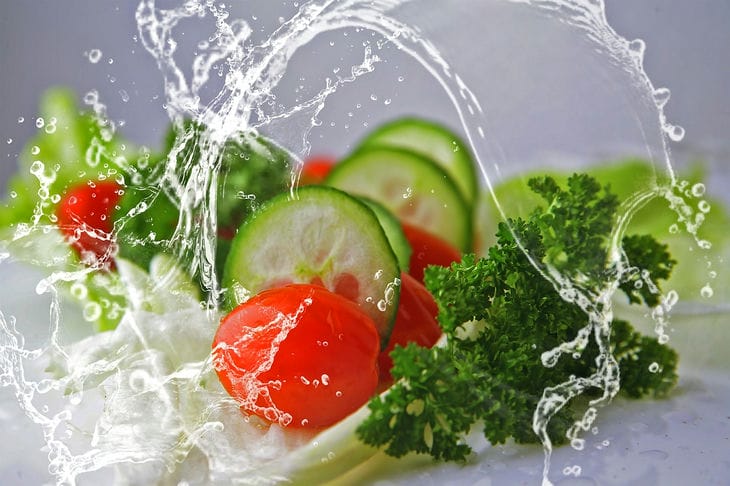Nutritionist Yulia Khodos told how to learn to control the hunger hormone
The hunger hormone ghrelin - how little we know about it.
Yulia Khodos, an integrative nutritionist and co-owner of the international platform for nutritionists Nutrient Planner, shared how to learn to control the hunger hormone.
But this is much more than hunger regulation! This is dopamine level control, and our motivation, leadership and innovation. Let's delve deeper into the topic.
Probably many have heard the terms “resistance” or “receptor sensitivity” to insulin, for example.
However, ghrelin sensitivity is no less important. Resistance refers to insufficient reduction of ghrelin after meals.

In relatively healthy people, the level of this hormone is maximum on an empty stomach. About 20 minutes after the start of eating, its concentration decreases by half. And normally it remains for up to 4 hours.
Some people are afraid of too long gaps between meals, as they become very hungry and risk overeating. But there is no need to be afraid of this.
It's more a question of frequency of meals rather than volume at a time. Ghrelin is produced by the walls of the stomach, so by eating enough food and not snacking, you keep it under control.
It takes 3-4 weeks of overeating for ghrelin resistance to develop. But it is reversible in about 12 weeks. Research shows that both dietary approaches work: calorie restriction and unlimited. The second method works more gently and for a longer period of time.
What causes loss of sensitivity? Not only due to regular overeating.
One of the main reasons is chronic inflammation. The development of sensitivity to ghrelin is a protective mechanism that protects the body from overeating.
Ghrelin affects cholesterol levels by acting on melanocortin receptors. Accordingly, when sensitivity is impaired, the lipid profile is also disrupted.
Ghrelin is also closely associated with an increase in dopamine and insulin. Eating some types of food a priori causes much more pleasure. The higher the insulin rise, the greater the heights of dopamine.
That is why all products with a high insulin index are so tasty! And these are flour, sweet, baked, dairy and especially chopped (our usual smoothies, fresh juices, etc.). Now do you understand the meaning of the ban on gluttony?
So what should you do to make normal healthy food tasty? Anyone who has switched to a healthy lifestyle will agree that over time, overly sweet dishes begin to seem cloying, and a regular carrot is better than any dessert.
"The receptors have cleared up," we say. You could say that. Ghrelin and dopamine have returned to their normal levels. Because the person has stopped eating endlessly. He has finally begun to feel the occasional feeling of hunger.
And it’s true that when we are truly hungry, even a crust of bread seems very tasty to us.
There are many more benefits to normal ghrelin function than we have yet to discuss. It has a neuroprotective effect, reducing the risk of neurodegenerative diseases such as Parkinson's and depression by protecting the dopaminergic system.
After all, ghrelin receptors are concentrated in the dopamine areas of the brain. And this affects motivation and leadership qualities. Low levels of ghrelin (for example, when we snack) lead to low levels of motivation.
But when there is too much of it, it is also not good. As it is fraught with the emergence of dependencies.
This leads to another important function of ghrelin – the desire for novelty, the craving for new vivid impressions (neophilia).
Historically, since prehistoric times (and we are not far from them in the context of human biochemistry), the mechanisms of obtaining food, namely the activation of processes responsible for the state of “fight or flight” (acute stress) and the search for food (chronic stress) are closely connected with curiosity, with the desire to learn new things, to gain unique experiences, vivid impressions.
These skills increase our adaptive abilities. Otherwise, so-called anhedonia occurs.
In the pursuit of something new and in the presence of a genetic predisposition to developing addictions, the risks of obesity (due to gluttony), drug addiction, gambling addiction, and even the now widespread ADHD (attention deficit hyperactivity disorder) increase.
That is why in a prosperous environment, seekers of novelty become innovators, and in an impoverished one, drug addicts and alcoholics. My advice: instead of satisfying momentary curiosity with food and a new movie, it is better to occupy your brain with worthy challenges!
Ghrelin levels increase not only in connection with food, but also with stress. Similar to the increase in glucose and insulin levels. We become more irritable, BUT at the same time more effective, this increases the will to live.
That's why many people are so productive during times of stress and looming deadlines.
Another issue is that modern burnout and the increased rate of laziness in the population as a whole leads to the fact that we simply eat away stress rather than use it to solve our problems.
This leads to obesity, diabetes, lipid profile disorders, cardiovascular problems, etc.
And another important point - reducing inflammation. Probably everyone knows that during illness the appetite goes away sharply, and returns upon recovery. Ghrelin left its mark here too.
There are receptors for it on monocytes and T-lymphocytes, due to which it stimulates the growth of lymphoid tissue and reduces the secretion of many anti-inflammatory cytocones. It is especially relevant for those who have encountered autoimmune processes.
With age, ghrelin production declines. Therefore, intermittent fasting is a fairly effective way to delay a noticeable decrease in its level and the onset of subsequent imbalances.
